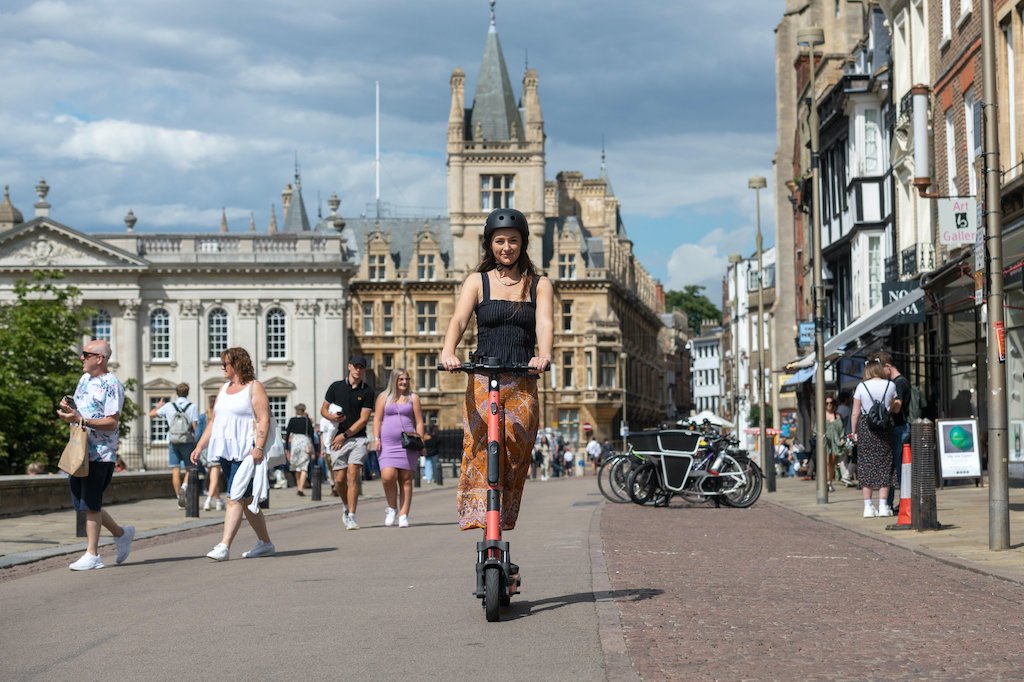Shared e-scooters bring people back to the high street
A new report from Swedish micromobility provider Voi Technology claims its shared e-scooter schemes are helping boost local economies in UK towns and cities by an estimated £53 million annually, while supporting up to 1,400 jobs.
The report, carried out by economic consultancy Volterra Partners and commissioned by Voi, found that shared e-scooters enable more high street visits, while also bringing shoppers and visitors back from retail parks and online shopping to city and town.
Voi’s shared e-scooters can currently be found in 17 towns and cities across the UK, including Bristol, Birmingham, Cambridge, Liverpool, Oxford and Southampton. In the two years since the rental trials launched, Voi riders have taken over 16 million trips – amounting to 24 million miles. By the end of 2022, it is estimated that Voi’s presence will have removed at least 6 million independent car trips from the road.
Despite the rise of online retail over the past few years, accelerated by COVID-19, the research suggests shared e-scooters have helped to bring people back to the high street. In particular, the research shows that e-scooters are helping to boost food and drink spending at cafes, pubs and restaurants by more than a third (36 per cent). When it comes to food and beverage spending alone, Voi’s e-scooters are expected to lead to a £106 million boost during the four-year trial period, potentially rising to £1.2 billion over the next 60 years in these areas.
Furthermore, an estimated £8.7 million is expected to be re-distributed to the high street from out-of-centre retail parks and online shopping in 2022, as up to 0.7 per cent of all shopping trips in the trial areas are estimated to be facilitated by shared e-scooter rides.
And according to Voi’s annual rider survey, without the availability of an e-scooter, 36 per cent of respondents said that they would have either shopped online or gone elsewhere. While 47 per cent of users say access to an e-scooter has allowed them to visit places in the city that they previously have not visited.
Matthew Pencharz, Head of Policy in the UK and Ireland at Voi, said, “This research gives us evidence that we are achieving what we set out to do – creating cities made for living by encouraging people to get out of their houses and cars and experience their local areas – and at the same time reducing the harmful effects of powering transport with fossil fuels. We’re only scratching the surface of what is possible with micro-mobility in the UK. Hopefully, more people will get to enjoy the economic and sustainability benefits of shared e-scooters beyond 2024.”

